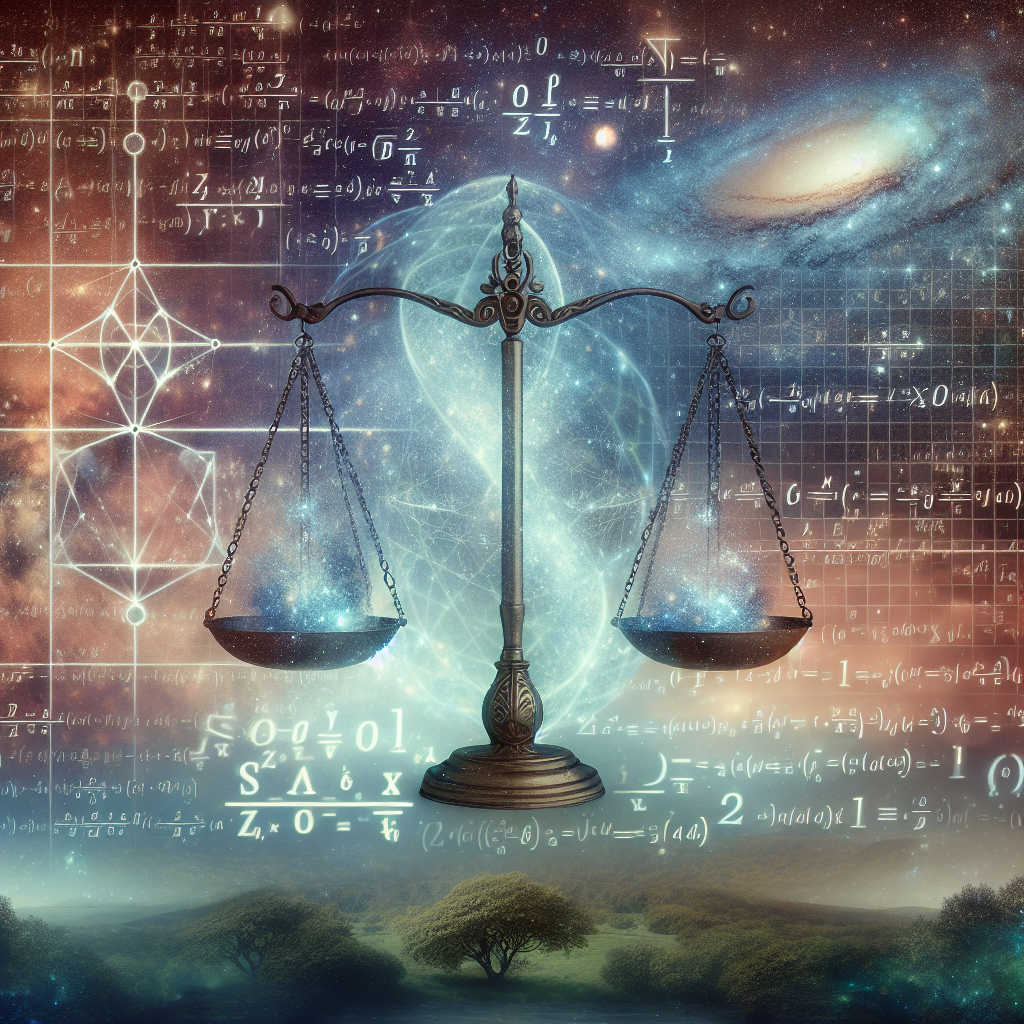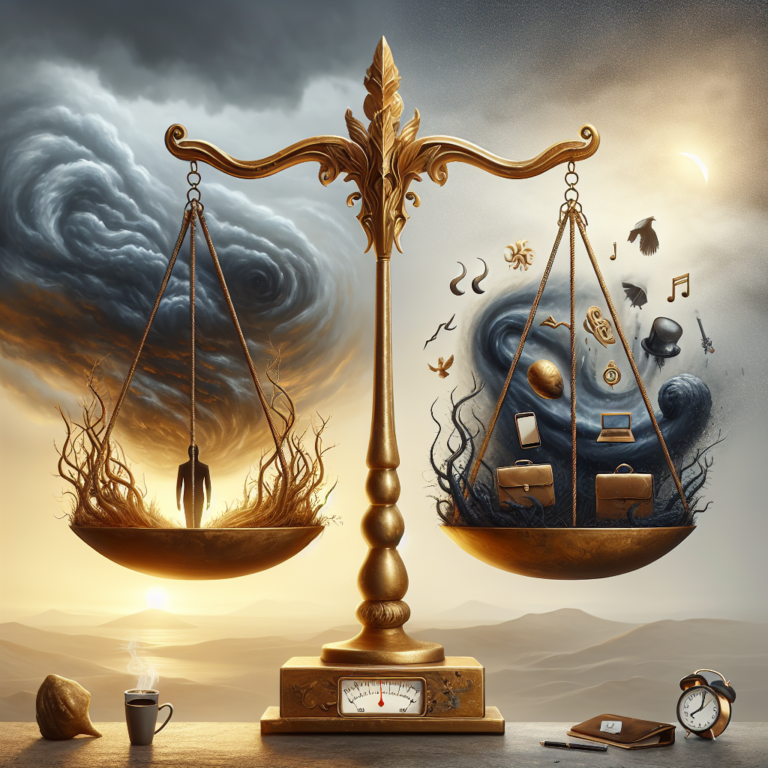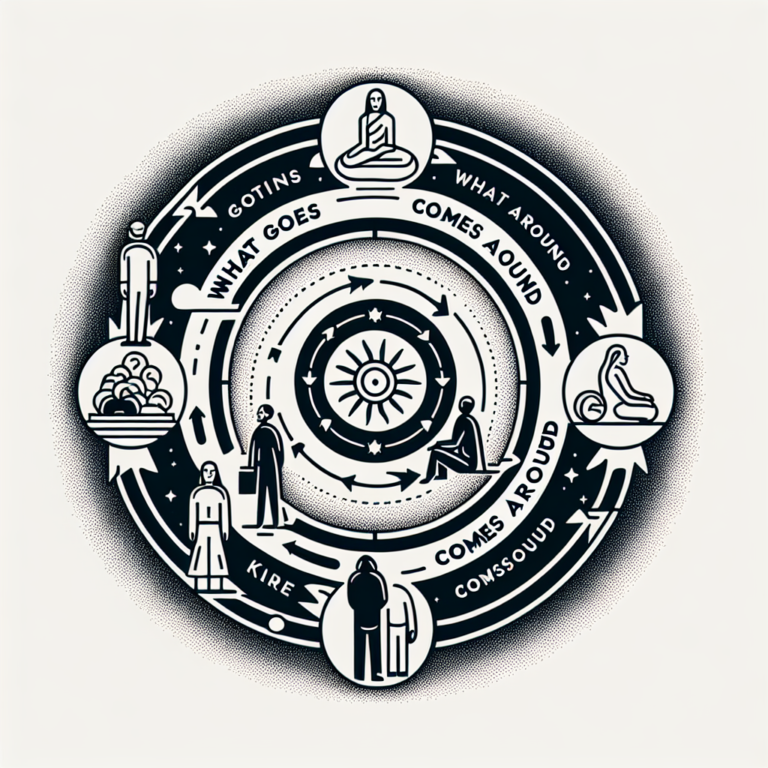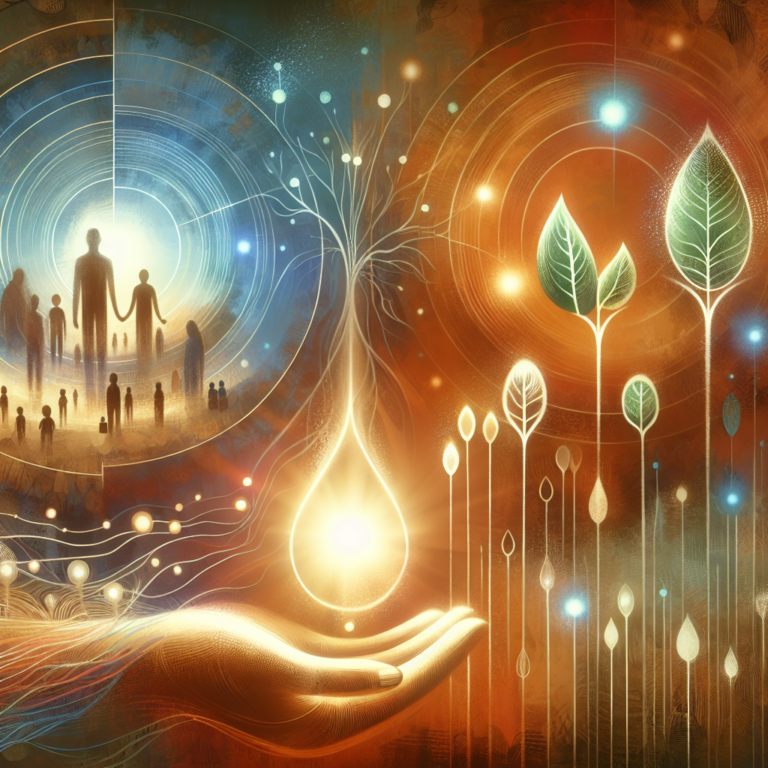The concept of universal law has intrigued humanity for centuries. From the ancient philosophers to modern scientists, the pursuit of understanding how the universe operates has been a fundamental quest. The cosmos, in all its complexity, adheres to laws that dictate the movement of galaxies, the behavior of matter, and the evolution of life. This article delves into the foundations of universal law, exploring its significance, applications, and the philosophical implications it poses. We will also discuss the relationship between universal law and personal development, providing insights into how these principles can manifest in our daily lives.
1. The Nature of Universal Law
Universal laws are fundamental principles that govern the functioning of the universe. They transcend cultural, religious, and philosophical boundaries, providing a framework for understanding both the physical and metaphysical realms. These laws can be categorized mainly into two groups: natural laws, which pertain to the physical universe, and spiritual laws, which relate to the metaphysical and ethical dimensions of existence.
1.1 Natural Laws
Natural laws consist of the observable phenomena that can be empirically tested and verified. They are often formulated through scientific inquiry and mathematics. Some of the most significant natural laws include:
- Law of Gravity: This law describes the attraction between two masses, providing insight into the motion of celestial bodies.
- Law of Thermodynamics: These laws govern the principles of energy conservation, heat transfer, and entropy.
- Law of Relativity: Formulated by Albert Einstein, this law reshaped our understanding of time and space, emphasizing their interconnectedness.
1.2 Spiritual Laws
Spiritual laws are often seen as guiding principles in personal development and ethics. They may not be scientifically measurable, but they hold profound significance for many individuals. Key spiritual laws include:
- The Law of Attraction: The belief that like attracts like, suggesting that positive or negative thoughts can shape one’s reality.
- The Law of Intention: The principle that our intentions can influence the outcomes of our actions.
- The Law of Rhythm: The idea that life has natural cycles, emphasizing the importance of timing and alignment with these cycles.
2. Historical Context of Universal Laws
The exploration of universal law has deep historical roots. Ancient civilizations, including the Egyptians, Greeks, and Eastern philosophies, proposed their interpretations of these laws. The contributions of noted thinkers from these periods laid the groundwork for contemporary understandings of universal law.
2.1 Ancient Philosophies
Many ancient cultures developed ideas about the cosmos that reflect an understanding of universal principles. For example:
- Hermeticism: This ancient philosophical system introduced the concept of “as above, so below,” emphasizing the interconnectedness of the universe.
- Stoicism: This Hellenistic philosophy emphasized living in accordance with nature and accepting one’s fate as governed by universal laws.
- Taoism: This Chinese philosophy adopts the concept of “Tao” (the way), hinting at a natural order that governs the universe.
2.2 Scientific Discoveries
With the advent of the scientific revolution, the understanding of universal laws shifted dramatically. Key figures such as Isaac Newton and Galileo Galilei contributed to formulating laws that could explain natural phenomena through empirical observation.
3. The Relationship Between Universal Law and the Cosmos
The cosmos embodies the principles of universal law, manifesting the interconnectedness of existence. To understand this relationship, one must consider various dimensions, including cosmology, quantum physics, and metaphysics.
3.1 Cosmology and Universal Law
Cosmology, the study of the universe’s origin and structure, provides insight into how universal laws shape the cosmos. The Big Bang Theory, for instance, describes the universe’s formation and highlights fundamental forces, such as gravity and electromagnetism, which govern cosmic behavior.
3.2 Quantum Physics and Universal Law
Quantum physics further challenges our understanding of universal law by revealing the behavior of matter and energy at the subatomic level. Concepts such as uncertainty, entanglement, and wave-particle duality indicate that the universe is not deterministically predictable, positioning it within a framework of probability governed by universal laws.
3.3 The Metaphysical Perspective
The metaphysical dimension of universal law suggests that consciousness itself plays a role in shaping reality. As philosophers like Immanuel Kant propose, our perceptions of the universe filter through subjective experiences, implying a co-creative relationship between humanity and the cosmos.
4. Practical Applications of Universal Law
Understanding universal law extends beyond theoretical explorations; it has practical applications in various aspects of life. From self-improvement to spiritual growth, universal laws can guide individuals in their personal journeys.
4.1 Personal Development
The principles of universal law can significantly enhance personal development efforts. By aligning with these laws, individuals can create a more fulfilling life. For example:
- Using the Law of Attraction: Practitioners often create vision boards, visualize their goals, and maintain a positive mindset to manifest desired outcomes.
- Embracing the Law of Intention: Setting clear intentions before taking action can help individuals focus their energies on achieving specific goals.
- Understanding the Law of Compensation: Recognizing that efforts yield returns can motivate individuals to work hard and contribute positively to others’ lives.
4.2 Collective Consciousness
Universal law underscores the importance of collective consciousness. The idea posits that thoughts and emotions influence not only individual experiences but also societal conditions. Movements advocating for peace, love, and sustainability resonate with the collective consciousness, demonstrating how universal law can effect change.
5. Philosophical Implications of Universal Law
The exploration of universal law raises important philosophical questions about existence, free will, and morality. These implications challenge us to rethink our understanding of life and our place in the cosmos.
5.1 The Nature of Free Will
While universal law implies order and predictability in the universe, the concept of free will introduces complexity. Are humans simply puppets of universal law, or do we possess the autonomy to shape our destinies? This philosophical debate continues to provoke discussions about individual agency in a universe governed by laws.
5.2 Ethical Considerations
Universal law also raises questions about ethics and morality. The alignment with spiritual laws can provide a moral framework, guiding individuals toward more ethical decisions. Philosophers like Aristotle emphasized the “Golden Mean,” advocating for moderation as a pathway to virtue.
6. The Quest for Knowledge and Enlightenment
Ultimately, the pursuit of understanding universal law is a quest for knowledge and enlightenment. By unraveling the mysteries of the cosmos, individuals can find their purpose, deepen their relationships, and foster a sense of belonging in the grand tapestry of existence.
Conclusion
The foundations of universal law provide a compelling framework for understanding the cosmos and our place within it. By studying the interconnectedness of natural and spiritual laws, we can navigate the complexities of existence and enhance our personal development journeys. While the pursuit of universal law may lead us into philosophical and scientific debates, it ultimately serves as a reminder of the profound beauty and mystery of the universe. Embracing these principles can pave the way for greater awareness, connection, and fulfillment in our lives.
FAQs
1. What are universal laws?
Universal laws are fundamental principles that govern the functioning of the universe. They can be categorized into natural laws, which pertain to observable phenomena, and spiritual laws, which relate to personal development and ethics.
2. How do universal laws affect my daily life?
Understanding universal laws can help individuals align their actions with overarching principles, enhancing personal development, decision-making, and overall well-being.
3. Can universal law be scientifically proven?
Natural laws can be empirically tested and verified through scientific inquiry. Spiritual laws, on the other hand, are often subjective and based on personal beliefs and experiences.
4. How can I apply universal laws in my life?
People apply universal laws by setting intentions, practicing positive thinking, and engaging in actions aligned with their goals. This helps to manifest desired outcomes and promote personal growth.
5. What role does consciousness play in universal law?
Consciousness is believed to play a pivotal role in shaping reality. Our thoughts, beliefs, and intentions can influence our experiences and the universe at large, suggesting a co-creative relationship with the cosmos.
, It seems like you may be looking for ideas, suggestions, or a specific type of prompt. Could you please clarify what kind of prompt you have in mind? For example, are you looking for writing prompts, conversation starters, creative project ideas, or something else? Let me know how I can help!, #Foundations #Universal #Law #Understanding #Cosmos, #Foundations #Universal #Law #Understanding #Cosmos, 1734049966, the-foundations-of-universal-law-understanding-the-cosmos





